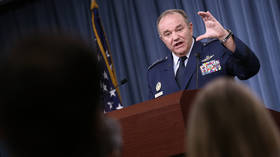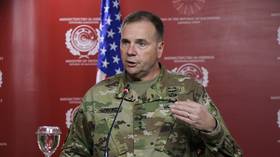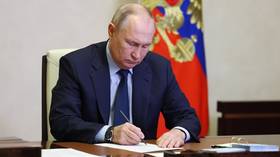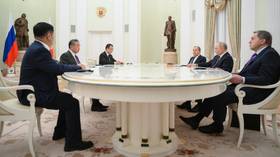Ex-NATO commander demands more Ukrainian attacks on Crimea

The West should be providing Ukraine with weapons it could use to intensify attacks on Crimea, former NATO Supreme Allied Commander Europe Philip Breedlove has reportedly argued. The US general opined that increasing pressure on the peninsula, which is home to Russia’s Black Sea fleet, would force Moscow to “rethink its posture there.”
The predominantly Russian-speaking region voted overwhelmingly to join Russia in a 2014 referendum following the Maidan coup in Kiev, which brought ethnic nationalist elements to the fore of Ukraine’s political landscape. Following the new government’s move to scrap their language rights, local residents expressed concerns that they would be singled out.
An opinion piece published in The Hill on Wednesday by Glen E. Howard, a former president of the neoconservative Jamestown Foundation think tank in Washington DC, quoted Breedlove as saying: “If we enable Ukraine to be able to strike Crimea — pervasively, persistently and precisely — Russia will be forced to rethink its posture there.”
“Strike them all, strike them repeatedly, and destroy them in detail,” the retired general advised Howard.
Breedlove's colleague, Ben Hodges, who served as a commanding general in the United States Army Europe, concurred that the peninsula represents the “decisive terrain of the war,” Howard wrote.
Speaking at the World Economic Forum meeting in Davos last Sunday, Ukrainian Defense Minister Rustem Umerov confirmed that despite the failed summer counteroffensive, reaching the country’s 1991 borders remains Kiev’s “strategic objective.” That would mean retaking Crimea, the port city of Sevastopol, and several other regions under Russian control.
In an interview with The Economist earlier this month, Ukrainian President Vladimir Zelensky described isolating Crimea as an “extremely important” objective. He expressed confidence that his country’s armed forces would manage to do so in 2024. The head of state also revealed that Kiev will be focusing on the Kerch bridge in particular, which connects Crimea to the Russian mainland.
With this in mind, President Zelensky once again demanded that Germany provide long-range Taurus cruise missiles, which Berlin has so far refused to supply.
In recent months, Ukraine has staged dozens of attacks on the peninsula, using seaborne and aerial drones as well as various missiles. Earlier in January, the Russian Defense Ministry reported that its air defenses had intercepted 36 Ukrainian UAVs as well as ten rockets over Crimea, including several British-supplied ‘Storm Shadows.’














